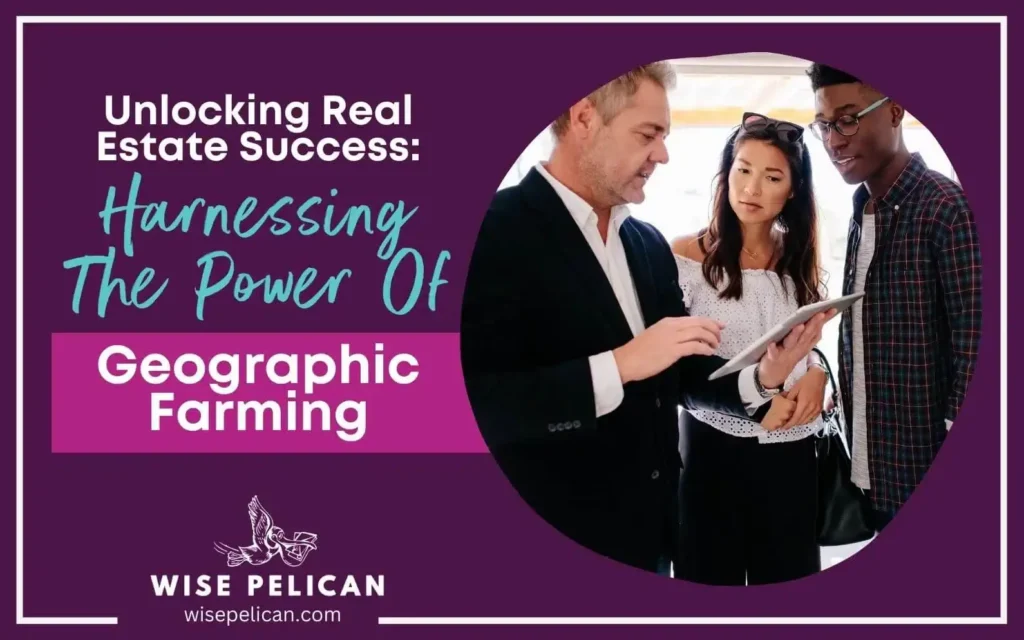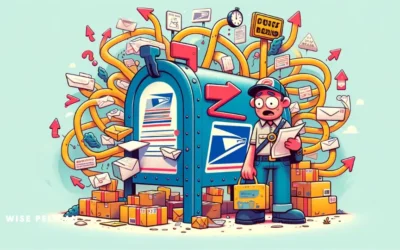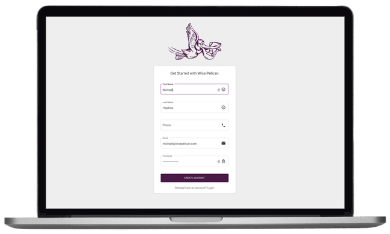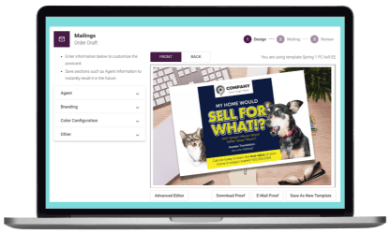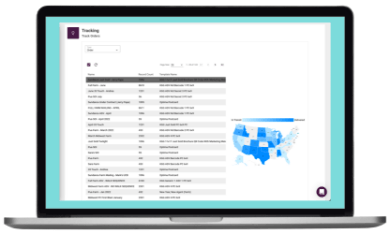Agents are always searching for effective strategies in today’s competitive real estate market. Geographic farming, also referred to as geo farming, a time-tested tactic, has emerged as a favorite. But what is geo farming? And how can this marketing method be optimized for today’s digital age?

What is Geo Farming in Real Estate?
So, what is geo farming in real estate? Geo farming is more than just a strategy; it’s a commitment. Agents select a specific neighborhood or area and focus their marketing efforts there, nurturing relationships and establishing themselves as the local expert. There are several benefits of geo farming.
How Can I Use Geo Farming in Real Estate?
By utilizing geographic farming in real estate, agents can deepen their knowledge about local property trends, schools, amenities, and community events by concentrating on a particular area. This expertise often translates to trust and credibility among potential clients.
Real estate agents who focus on a particular geographic area can significantly benefit from becoming local experts. Here’s how they can achieve this.
Geographic Farming Market Research
Through the consistent practice of real estate geographic farming, REALTORS can meticulously study local property trends, keeping track of property values, average listing times, and emerging neighborhood developments. This data-driven approach allows them to provide clients with valuable insights.
Networking
Building solid relationships with other local professionals, such as appraisers, inspectors, and contractors, helps agents access reliable client resources. This network can also be a source of referrals.
Schools and Amenities
Through geo farming, agents familiarize themselves with the quality of local schools, nearby parks, recreational facilities, shopping centers, and other amenities. This knowledge enables them to match properties with a client’s lifestyle preferences.
Community Involvement
Actively participating in community events, volunteering, or even living in the area they specialize in can help agents understand the neighborhood’s unique character. This personal touch can be invaluable when selling a home.
How to Use Geographic Farming
Becoming a local expert in your geographic farm benefits the agent and establishes trust and credibility among potential clients.
In-Depth Advice
Clients appreciate agents who can provide detailed information about an area, which instills confidence in their recommendations. For example, knowing about upcoming zoning changes or neighborhood revitalization projects can be a significant advantage.
Tailored Recommendations
REALTORS, with local expertise, can match properties to clients’ specific needs, whether it’s proximity to good schools, public transportation, or access to particular amenities. This personalized service strengthens the client-agent relationship.
Community Connections
Being part of the local community helps agents connect clients with neighbors and community resources. This sense of belonging fosters trust and makes transitioning into a new area smoother for clients.
Reputation
Over time, an agent’s reputation as a trusted local expert can lead to word-of-mouth referrals and repeat business, further solidifying their position in the market.
Focused Marketing in Geo Farming
Instead of spreading resources thinly across a vast area, agents can effectively channel their marketing dollars and efforts, leading to a higher ROI.
Targeted Audience
By narrowing their focus, agents can identify and understand their target audience more effectively. They can tailor their marketing messages to resonate with the local population’s demographics, preferences, and needs.
In-Depth Knowledge
REALTORS can invest time and effort into deeply understanding the local market trends, buyer behavior, and competition within a specific area. This knowledge allows for more informed decision-making in marketing strategies.
Cost-Efficiency
Concentrating marketing efforts in a defined geographic area can significantly reduce advertising costs. Instead of spreading their budget thinly across a vast region, REALTORS can invest more in high-impact, localized campaigns.
Brand Recognition
Consistent and repeated exposure to a specific audience helps build brand recognition within that community. This can lead to a more substantial reputation and trust among potential clients as the agent becomes a well-known local expert.
Efficient Networking
Agents can establish strong relationships with local businesses, community organizations, and other professionals. This can lead to collaborative marketing opportunities, referrals, and a mutually beneficial network.
Higher ROI Through Targeted Marketing
The benefits of concentrating marketing resources in a specific area ultimately translate into a higher ROI for real estate agents and businesses.
Increased Conversion Rates
When marketing efforts are precisely aligned with the needs and preferences of the local market, the chances of converting leads into clients are higher. This means less wasted effort and more closed deals.
Reduced Wastage
Focusing on a specific area reduces the chances of wasted marketing dollars on audiences unlikely to be interested in the offered services. It’s a more efficient way to allocate resources.
Sustainable Growth
Building a strong local presence and reputation takes time, but the long-term benefits are sustainable. REALTORS can enjoy steady referrals and repeat business, further improving their ROI.
Measurable Results
A concentrated marketing approach allows for better tracking and measurement of results. Real estate agents can quickly gauge the effectiveness of their campaigns and make data-driven adjustments to improve ROI over time.
Fostering Referrals Through Client Satisfaction
As agents become well-known in the area, satisfied clients are more likely to refer them to friends and family.
Trust and Credibility
Agents who are deeply knowledgeable about a neighborhood or community are seen as trustworthy sources of information. Clients are more likely to trust their recommendations when buying or selling a property in that area.
Personalized Service
Agents specializing in a particular locale can provide a more personalized service to their clients. They understand the area’s unique qualities, amenities, and challenges, allowing them to tailor their advice and guidance to individual client needs.
Successful Track Record
Agents who consistently close deals in a specific area can showcase a successful track record. This track record can be a compelling selling point for potential clients looking for a proven performer in their desired location.
The Power of Word-of-Mouth Referrals
As REALTORS build their reputation in the community, satisfied clients become valuable advocates who naturally refer the agent to their friends and family.
Trust in Recommendations
When someone has a positive experience with a real estate agent, they are likelier to recommend that agent to people they know. Trust in the agent’s abilities and integrity plays a significant role in these recommendations.
Personal Connection
People often turn to their social circles for recommendations on essential matters like real estate. When a friend or family member shares their positive experience with a particular agent, it creates a personal connection and a sense of reliability.
Referral Incentives
Some agents offer referral incentives to their clients, such as discounts on future transactions or small gifts. These incentives can motivate clients to refer the agent to others actively.
Expanded Network
Word-of-mouth referrals can quickly expand an agent’s client base. One referral can lead to multiple new clients, creating a snowball effect that grows the agent’s business.
Sustaining and Nurturing Referrals
To leverage the power of referrals effectively, agents should consider the following:
Maintaining Relationships
Agents should continue engaging with past clients even after completing the transaction. Staying in touch through occasional updates or sending holiday greetings helps keep the agent in mind for referrals.
Requesting Referrals
Agents can proactively ask satisfied clients for referrals. This can be done during or after a successful transaction, making it clear that the agent values and appreciates their support.
Providing Exceptional Service
Consistently delivering exceptional service ensures that clients have positive experiences worth sharing. Going the extra mile and exceeding expectations can lead to enthusiastic referrals.

The Role of Real Estate Postcards
Enter the trusty postcard. In an era of digital overload, the tactile experience of receiving a postcard in the mail feels refreshingly personal. “Just Listed” and “Just Sold” postcards are powerful reminders of an agent’s active presence and success in the community.
Tactile Experience
Postcards provide a physical and tactile experience, unlike emails or social media messages. The act of holding a postcard in hand and flipping it over to read the message creates a sensory connection that digital communications can’t replicate.
Nostalgia and Sentiment
Postcards evoke feelings of nostalgia and sentimentality. Many people associate postcards with travel memories, holidays, or special occasions. When they receive one in the mail, it can trigger positive emotions and a sense of connection.
Less Intrusive
Postcards are less invasive than digital marketing methods. They arrive in the mailbox, allowing recipients to engage with them conveniently. This non-intrusive nature makes postcards more likely to be noticed and read.
The Power of “Just Listed” and “Just Sold” Postcards
“Just Listed” and “Just Sold” postcards are particularly effective tools for REALTORS because they serve as powerful reminders of an agent’s active presence and success in the community:
Showcasing Expertise
When an agent sends out a “Just Listed” postcard, it highlights their current listings, demonstrating their local real estate market knowledge. Conversely, a “Just Sold” postcard showcases successful transactions and reinforces the agent’s track record.
Community Engagement
These postcards demonstrate an agent’s active involvement in the community. They signify that the agent is selling properties and actively contributing to the neighborhood’s growth and vitality.
Generating Buzz
“Just Listed” postcards can generate interest and excitement about a new property on the market. They often include appealing visuals and critical details, piquing the curiosity of potential buyers.
Trust and Credibility
Sending these postcards regularly reinforces an agent’s trustworthiness and credibility. Consistency in marketing efforts establishes the agent as a reliable and committed professional.
Maximizing the Impact of Postcards in Geo Farming: Proactive Strategies
Agents can take additional steps to maximize the impact of “Just Listed” and “Just Sold” postcards.
Personalized Messaging
Including a personal message on the postcard adds an extra layer of personalization. It shows recipients that the agent values their connection.
Timely Follow-Ups
REALTORS can follow up with recipients after sending a postcard to answer questions, offer assistance, or simply check-in. This proactive approach strengthens client-agent relationships.
Quality Design and Imagery
Investing in high-quality design and appealing imagery for postcards can make them stand out and leave a lasting impression.
In an age dominated by digital communication, the enduring appeal of postcards lies in their tactile and personal nature. “Just Listed” and “Just Sold” postcards are powerful tools for real estate agents to showcase their expertise, engage with the community, and build client trust.
Combining tangible connection and effective messaging makes postcards a valuable asset in a real estate agent’s marketing arsenal.

Real Estate Postcards: Beyond “Just Listed” & “Just Sold”
While digital ads can be scrolled past, a tangible postcard demands attention. These postcards aren’t just announcements but proof of an agent’s effectiveness and dedication.
The requirement of a recent sale or listing can be restrictive. However, agents can also consider alternate postcard themes.
Community Events
Sponsoring a local event demonstrates your commitment to the community. It’s an opportunity to give back and become an integral part of the neighborhood. Choose an event that aligns with your company’s values and mission, such as a charity fundraiser, a local festival, or a school event.
Building Relationships
Sponsorship allows you to build strong relationships with event organizers and local businesses. These connections can be valuable for future collaborations and partnerships.
Postcard Announcements
Design eye-catching postcards to announce the sponsored event. Use vibrant colors, compelling imagery, and concise messaging that conveys the event’s date, time, location, and purpose. Include your company logo and contact information prominently.
Targeted Mailing List
Compile a targeted mailing list of local residents, potential clients, and business partners. Ensure that your postcards reach the right audience, increasing the chances of attendance and engagement.
Early Announcements
Send out postcards well in advance of the event to generate excitement and anticipation. Early announcements give recipients ample time to plan to attend, increasing the event’s attendance.
Highlight Your Involvement
Incorporate your sponsorship into the postcard message. Explain why you support the event and how it benefits the community. This reinforces your commitment to local causes.
Interactive Elements
Consider adding interactive elements to the postcard, such as QR codes that link to event details, RSVP options, or exclusive promotions related to the event. This can encourage recipients to take immediate action.
Follow-up and Thank You
After the event, send a follow-up postcard to thank attendees and share highlights and photos. Express your gratitude for their participation and reinforce your brand’s connection to the community.
Measuring Success
Track the success of your postcard campaign by monitoring event attendance and the engagement it generates. Use this data to evaluate the impact of your sponsorship and adjust your future marketing strategies.
Long-Term Impact
Sponsorship and postcard marketing shouldn’t be seen as a one-time effort. Continuously engaging with the community through events and thoughtful marketing keeps your company top-of-mind, strengthens your local reputation, and can lead to long-term growth and success.

Home Maintenance Tips
Offering seasonal home care tips effectively demonstrates you as a real estate and home maintenance expert. By providing valuable advice, you position yourself as a trusted resource that goes beyond real estate transactions.
Timely and Relevant Content
Each season presents unique challenges and maintenance tasks for homeowners. For example:
- Spring: Offer tips on preparing the home and garden for the warmer months, including landscaping and cleaning tips.
- Summer: Focus on topics like energy-efficient cooling, outdoor entertaining, and pest control.
- Fall: Share advice on winter preparation, including gutter cleaning and insulation checks.
- Winter: Provide tips for keeping the home cozy, safe, and energy-efficient during the colder months.
Personalized Messaging
Tailor your seasonal home care tips to the specific needs of your target audience. Consider the climate and common housing issues in your region. Personalized content resonates better with homeowners and reinforces your understanding of their local concerns.
Visual Appeal
Incorporate visually appealing graphics and images into your postcards. Use before-and-after photos or illustrations to demonstrate the effectiveness of your tips. Visual content tends to capture attention and make your advice more memorable.
Clear and Actionable Advice
Ensure that your home care tips are easy to understand and actionable. Use step-by-step instructions when necessary and provide a list of tools or materials needed. Encourage recipients to take immediate action to improve their homes.
Consistency
Consistency in delivering seasonal tips is vital. Send out postcards at the start of each season or as the holidays approach. Consistent messaging establishes a routine and keeps your company top-of-mind.
Engage with Recipients
Invite recipients to reach out for further advice or assistance. Encourage them to ask questions, share their own experiences, or request additional resources. This engagement fosters a sense of community and trust.
Highlight Your Services
While offering home care tips positions you as a helpful expert, it’s also an opportunity to highlight your real estate services subtly. Include your contact information, website, and a brief message about how you can assist with their home buying or selling needs.
Track Engagement
Use tracking mechanisms like QR codes or unique URLs on the postcards to measure recipient engagement. This data can help you understand which postcards resonate most with your audience and adjust your content accordingly.
Building Long-Term Relationships
You can build long-term relationships with homeowners by consistently providing valuable information and positioning yourself as a helpful expert. This trust can translate into recurring business and referrals.
Offering seasonal home care tips through postcards is a powerful real estate postcard company strategy.
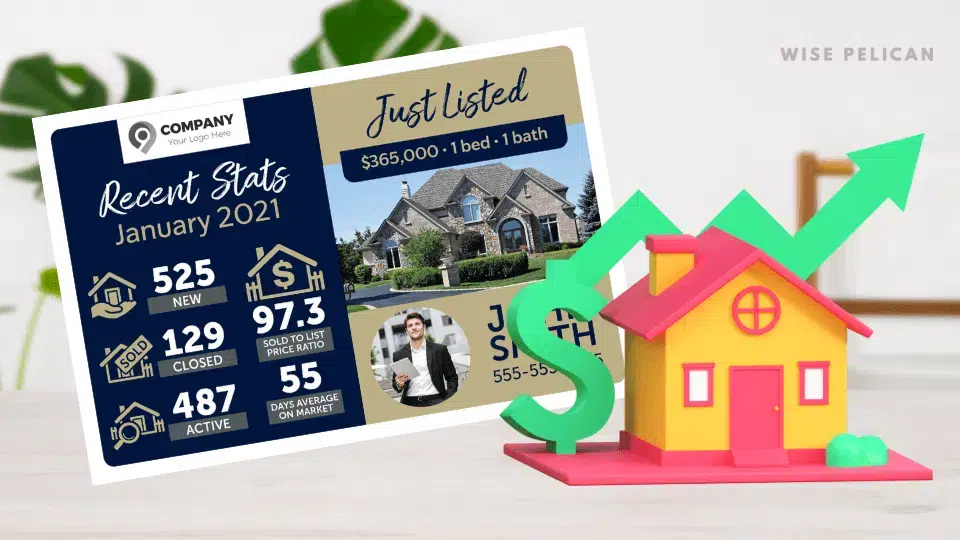
Local Market Updates
Conduct a thorough market analysis to share insights on recent real estate trends effectively. This includes examining current sales data, price trends, inventory levels, and local economic indicators. Doing so can provide accurate and up-to-date information to your clients.
Highlight Local Market Dynamics
Every real estate market is unique, and trends can vary from one neighborhood to another. Use your postcards to highlight the specific dynamics of the areas you serve. Discuss which communities are experiencing high demand, which are seeing price growth, and which offer excellent investment opportunities.
Visualize Data
Consider incorporating visually appealing charts, graphs, and infographics in your postcards to help clients understand complex market data at a glance. Visual aids make it easier for recipients to absorb and retain information.
Interpret Trends
Don’t just present raw data; provide insightful analysis and interpretation of the trends. Explain what the data means for your area’s buyers, sellers, and investors. Offer predictions and recommendations based on your analysis to help recipients make informed decisions.
Emphasize Local Expertise
Highlight your local expertise and understanding of the market. Mention how you stay informed about the latest developments and trends, ensuring clients receive the most accurate and valuable insights.
Address Common Concerns
Use your postcards to address common concerns and questions that clients may have about the current market. For instance, if it’s a seller’s market, discuss strategies for getting the best price for their property. If it’s a buyer’s market, provide tips for finding good deals.
Showcase Success Stories
Include real-life success stories or case studies in your postcards. Highlight how your services helped clients navigate the market successfully. These stories add credibility and illustrate your expertise.
Invite Engagement
Encourage recipients to ask questions or request a personalized market analysis. Invite them to attend local seminars or webinars where they can gain further insights into the market.
Consistency in Communication
Maintain consistency in sharing real estate trend updates. Whether it’s a monthly, quarterly, or seasonal update, having a regular postcard schedule keeps your clients informed and engaged.
Measure Client Engagement
Use analytics and tracking tools to measure client engagement with your real estate trend insights. This data can help you understand which topics resonate most with your audience and tailor your future communications accordingly.
You position your company as a valuable client resource by consistently sharing insights on recent real estate trends in your area through postcards. You provide them with the knowledge they need to make informed decisions in the ever-changing real estate market, ultimately strengthening your brand’s reputation and fostering long-term client relationships.

Enter Automated Seller Valuation Postcards
Time Savings
In the real estate industry, time is of the essence. Agents often have multiple tasks to juggle, from client meetings to property showings and negotiations. Automating postcards eliminates the time-consuming process of designing, printing, and sending them manually each month. This time saved can be reinvested into more high-impact activities.
Consistency
Consistency is key to maintaining a strong market presence. Automated postcards ensure that marketing efforts remain consistent month after month, even when agents are occupied with other responsibilities. This consistency helps agents stay top-of-mind with their clients and prospects.
Targeted Messaging
Automation allows for precision in targeting specific segments of the market. For instance, agents can send tailored postcards to buyers, sellers, or investors based on their needs and preferences. This personalized approach increases the chances of engagement and conversion.
Building Trust Through Technology
Automated postcards can be customized to include data relevant to each recipient’s property or interests. For sellers, this might mean showcasing recent sales in their neighborhood, while for buyers, it could involve highlighting new listings that match their criteria. Tailored data adds a personal touch and demonstrates that the agent is attentive to the recipient’s specific needs.
Enhancing Trust
When clients receive postcards with information directly related to their real estate goals, it fosters trust. They see the agent as someone who understands their unique situation and can provide valuable insights.
Improved Engagement
Tailored postcards are more likely to capture the recipient’s attention and encourage them to take action. Whether visiting a property’s website, scheduling a consultation, or referring a friend, increased engagement can lead to more productive interactions.
Bridging Traditional and Digital Marketing
Automation platforms like Wise Pelican offer the advantage of seamlessly integrating digital tools like QR codes into traditional marketing materials. QR codes allow recipients to access additional information, property listings, or even schedule appointments with a simple scan. This bridge between traditional and digital marketing enhances the overall effectiveness of postcard campaigns.
Multichannel Marketing
By incorporating digital elements, agents can expand their marketing reach. Recipients who prefer digital channels can engage with QR codes and online resources, while those who appreciate tangible postcards can still benefit from traditional mailings.
Real estate postcard marketing automation is essential for efficiency in a fast-paced industry. It ensures consistency, allows for precise targeting, and saves valuable time. Automation offers the opportunity to build trust through technology by delivering personalized and relevant content to recipients.
When coupled with digital integration tools like QR codes, automated postcards bridge the gap between traditional and digital marketing, creating a more comprehensive and effective marketing strategy for real estate agents.
These aren’t generic postcards. Tailored data means each recipient gets information relevant to their property, enhancing trust and engagement.
With platforms like Wise Pelican, the integration of digital tools like QR codes bridges the gap between traditional and digital marketing seamlessly.

Consistency is Key
Studies have shown that repeated exposure to a brand increases likability and trust. In real estate, consistent marketing can position an agent as a familiar and trusted face.
The Power of Repetition
Repeated exposure to a brand is a fundamental principle in marketing psychology known as the “mere exposure effect.” This psychological phenomenon suggests that people tend to develop a preference for things they are exposed to repeatedly. In the context of real estate marketing, consistently seeing an agent’s name, face, or brand can positively impact how potential clients perceive and trust them.
Familiarity Breeds Trust
Consistent marketing efforts, such as sending postcards, maintaining an active social media presence, or running targeted advertising campaigns, contribute to building familiarity with an agent’s brand. As potential clients encounter this brand repeatedly, they begin to feel a sense of familiarity, which can translate into trust.
Building a Positive Reputation
Consistency in marketing also allows REALTORS to deliver their message and showcase their expertise consistently. Over time, this contributes to building a positive reputation in the eyes of potential clients. Trust is often associated with agents who are seen as knowledgeable, reliable, and consistent in their services.
Overcoming Skepticism
Real estate transactions involve significant financial and emotional investments. Clients may approach these transactions with skepticism and caution. However, repeated exposure to a trusted agent’s brand can help alleviate these concerns. Familiarity and trust can reassure clients that they are making a wise decision when choosing that agent.
Long-Term Relationship Building
Real estate transactions are not just one-time deals; they often lead to long-term relationships between agents and clients. Consistent marketing efforts build a foundation for these relationships. Clients are more likely to return for future transactions and refer the agent to others if they have a strong sense of trust and familiarity.
Diversified Marketing Channels
To achieve effective repetition, real estate agents should utilize a variety of marketing channels. This may include traditional methods like postcards, direct mail, and digital channels like email marketing, social media, and online advertising. A diverse marketing strategy ensures the agent’s brand reaches clients through multiple touchpoints.
Reinforcing Expertise and Reliability
Consistent marketing efforts should also convey the agent’s expertise and reliability. Sharing valuable insights about the local real estate market, providing tips for buyers and sellers, and showcasing success stories all reinforce the image of a knowledgeable and trustworthy agent.
Measuring and Adjusting
To ensure that marketing efforts are effective in building trust and familiarity, agents should track the results of their campaigns. This includes monitoring engagement rates, conversion rates, and client feedback. This data allows agents to adjust their marketing strategies to optimize their impact over time.
Repeated exposure to a brand increases likability and trust, and this principle holds true in the real estate industry.
Consistent marketing efforts position an agent as a familiar and trusted face, which is crucial for building long-lasting client relationships and a positive reputation. By leveraging diverse marketing channels and continually reinforcing their expertise, real estate agents can harness the power of repetition to establish themselves as trustworthy and reliable professionals in their field.
Maintaining Consistency in Marketing
Beyond just postcards, agents should aim for consistency across all marketing channels. This includes maintaining an active social media presence, attending local community events, and regularly updating their website with fresh content.
A Unified Brand Presence
Consistency across all marketing channels is essential for presenting a unified brand image. Clients who encounter an agent’s brand on multiple platforms should have a seamless and cohesive experience. This unified presence enhances brand recognition and reinforces the agent’s message.
Active Social Media Presence
Maintaining an active social media presence is crucial in today’s digital age. Social media platforms allow agents to engage with their audience in real time, share valuable content, and showcase their expertise. Consistency on social media means regularly posting updates, responding to comments and messages, and sharing relevant industry news.
Community Engagement
Attending local community events is a powerful way to build relationships and establish trust within the neighborhood. Agents who actively participate in community activities demonstrate their commitment to the area, reinforcing their status as local experts. Consistent attendance at these events helps agents become recognizable and trusted faces within the community.
Fresh Website Content
A real estate agent’s website is often the first point of contact for potential clients. Regularly updating the website with fresh content, such as blog posts, market reports, and property listings, keeps the site relevant and showcases the agent’s ongoing commitment to providing valuable information. It also improves search engine visibility, drawing in more potential clients.
Email Marketing Campaigns
Consistency in email marketing campaigns is another crucial aspect of a well-rounded marketing strategy. Agents can send newsletters, property updates, and educational content to their subscribers on a regular schedule. This keeps their brand in the minds of recipients and encourages engagement.
Cross-Promotion
Agents should aim for cross-promotion across their marketing channels. For example, they can share social media posts about their attendance at a local event and provide updates on their website or email newsletter about the same event. This cross-promotion reinforces their presence and message.
Content Quality Over Quantity
While consistency is important, quality should not be compromised. Having a few high-quality, engaging posts or updates is better than flooding channels with low-value content. Focus on delivering content that provides real value to the audience.
Brand Voice and Messaging
Maintain a consistent brand voice and messaging across all channels. This includes the tone of communication, key messages, and branding elements. A unified voice and message help create a recognizable and trustworthy brand identity.
Measure and Adapt
Regularly review the performance of marketing efforts across different channels. Use analytics to determine what works best and what needs improvement. Adjust strategies based on data to ensure that the message remains effective and resonates with the target audience.
Long-Term Relationship Building
Consistency across all marketing channels contributes to long-term relationship-building with clients. Clients who see an agent’s consistent and reliable presence are more likely to trust and engage with the agent over time. This can lead to repeat business, referrals, and a strong reputation in the market.
Consistency across all marketing channels is vital for real estate agents to establish a strong brand presence, build trust, and engage with their audience effectively.
Beyond just postcards, agents should leverage various platforms, maintain active participation in the community, and keep their website and content up-to-date. This comprehensive approach ensures that agents are consistently visible and valuable to their clients and prospects.

Beyond Valuations: Building Relationships
Real estate, at its core, is a people business. While valuations, data, and marketing strategies are essential, the real magic happens in the one-on-one interactions. Automated tools, while efficient, should be seen as conversation starters, not replacements for genuine human connection.
The People-Centric Nature of Real Estate
At its essence, real estate is about helping people make one of the most significant decisions of their lives – buying or selling a home. It’s a deeply personal and emotional process. Buyers and sellers often seek guidance, reassurance, and a trusted partner to navigate the complexities of the real estate market.
The Value of Data and Strategy
Valuations, data, and marketing strategies are indispensable tools in the real estate industry. They provide the foundation for informed decision-making. Data-driven insights help clients understand market trends, property values, and investment opportunities. Effective marketing strategies can maximize a property’s exposure to the right audience. However, these tools are just that – tools to support the core human element of the business.
The Real Magic in One-on-One Interactions
The true magic in real estate happens when agents connect with clients on a personal level. It’s about understanding their unique needs, aspirations, and concerns. One-on-one interactions enable agents to empathize with clients, provide tailored solutions, and offer emotional support when needed. Clients appreciate the human touch and the feeling that they are not just another transaction.
The Role of Automated Tools
Automated tools, such as email marketing, chatbots, or virtual property tours, can greatly enhance efficiency in the real estate business. They allow agents to reach a broader audience and handle routine tasks more effectively. They are valuable conversation starters and facilitators of the client-agent relationship.
Building Trust and Rapport
Trust is a cornerstone of any successful real estate transaction. Trust is built through consistent, personalized, and attentive communication. While automated tools can initiate contact or provide information, the agent’s role is to nurture trust through active listening, addressing concerns, and offering expert guidance.
Fostering Long-Term Relationships
Real estate relationships often extend beyond a single transaction. Agents prioritizing one-on-one interactions and authentic connections are more likely to build long-term client relationships. Repeat business and referrals often come from clients who have experienced the value of a genuine human connection.
Balancing Efficiency and Personalization
The key is to strike a balance between efficiency and personalization. Automated tools can handle routine tasks, allowing agents to focus on what matters most – meaningful interactions. By using technology as a facilitator rather than a replacement, agents can offer clients the best of both worlds: streamlined processes and genuine human connections.
Real estate is undeniably a people business.
While data and marketing strategies are essential, the heart of the industry lies in the one-on-one interactions between agents and clients. Automated tools should be viewed as tools to enhance efficiency and initiate conversations. Still, they should always maintain the irreplaceable human connection that is at the core of successful real estate transactions.

Engaging with Potential Clients
Once a homeowner shows interest, agents have a golden opportunity. It’s essential to approach these interactions with genuine curiosity and a desire to help. Listen more, talk less, and always aim to provide value.
Seizing the Golden Opportunity
When a homeowner expresses interest in your services as a real estate agent, it marks the beginning of a potentially fruitful relationship. Recognize that this initial interaction is a golden opportunity to establish trust and demonstrate your expertise.
Genuine Curiosity
Approach these interactions with genuine curiosity about the homeowner’s needs and goals. Every client is unique, and taking the time to understand their specific situation is crucial. Ask open-ended questions to encourage them to share their thoughts, concerns, and priorities.
Active Listening
One of the most valuable skills an agent can possess is being an active listener. Listen more than you talk during these interactions. Give your full attention to what the homeowner is saying, and try to understand their perspective truly. This builds rapport and effectively allows you to tailor your services to their needs.
Providing Value
In every interaction, aim to provide value to the homeowner. This can take various forms:
- Expert Advice: Share your knowledge and insights about the local real estate market, property values, and trends.
- Problem Solving: Identify potential challenges or opportunities related to their real estate goals and offer solutions.
- Guidance: Offer guidance on the buying or selling process, outlining the steps involved and what they can expect.
- Resource Sharing: Share valuable resources, such as market reports, neighborhood guides, or financing options.
Building Trust
Trust is the foundation of successful real estate relationships. You build trust with potential clients by approaching interactions with genuine curiosity, active listening, and a commitment to providing value. Trust is what ultimately leads to long-lasting partnerships and referrals.
Tailored Solutions
Each homeowner’s situation is unique, and their real estate needs may vary. As you actively listen and gather information, use this knowledge to offer tailored solutions. Customizing your approach demonstrates that you are dedicated to helping them achieve their specific goals.
Communication Skills
Effective communication is vital during these interactions. Clearly explain concepts, options, and strategies in a way that the homeowner can easily understand. Avoid industry jargon that may be confusing.
Patience and Empathy
Real estate decisions can be emotionally charged and may involve significant financial implications. Exercise patience and empathy in your interactions. Understand that homeowners may need time to make decisions and have sensitive concerns.
Follow-Up and Consistency
After the initial interaction, follow up with potential clients to demonstrate your continued interest and commitment. Consistent, thoughtful communication reinforces your value and keeps you top-of-mind.
Long-Term Perspective
View these interactions as opportunities for immediate transactions and the foundation for long-term relationships. Clients who feel heard, valued, and well-served are likelier to become repeat clients and refer others to you.
Engaging with potential clients in the real estate industry requires a combination of skills, including genuine curiosity, active listening, and a commitment to providing value. By approaching these interactions with empathy, patience, and a focus on building trust, you can establish solid, long-lasting relationships that benefit you and your clients.
In the evolving landscape of real estate marketing, the blend of traditional and modern strategies offers agents the best of both worlds. Geographic farming, anchored by tools like postcards and boosted by automation, provides a roadmap to success. But remember, at the heart of every transaction is a person. Agents can grow their businesses and enrich their professional journey by building relationships and establishing trust.
Make Wise Pelican your go-to partner for all your real estate postcard needs. Elevate your marketing and leave a lasting impression. Discover excellence in every detail – start creating impactful postcards with us today.
